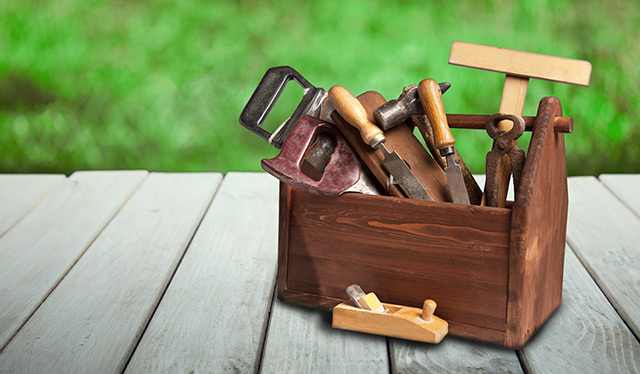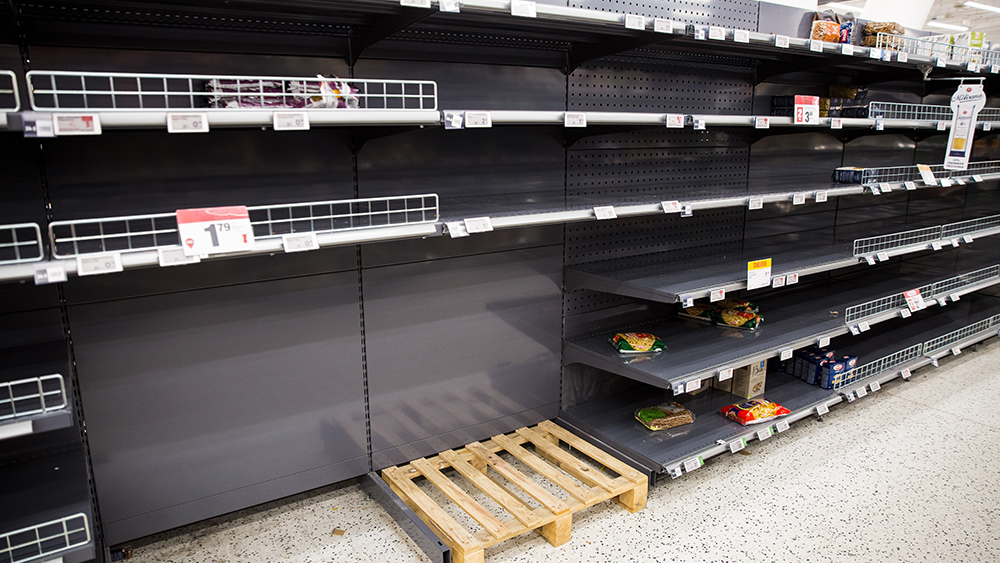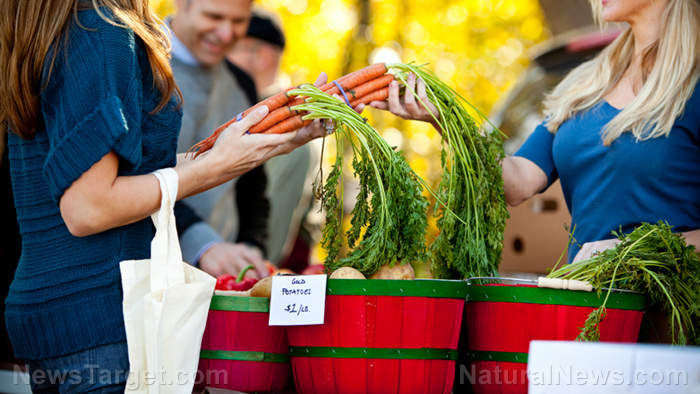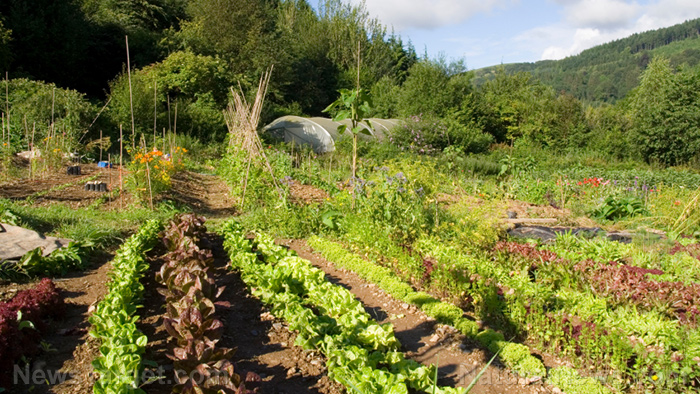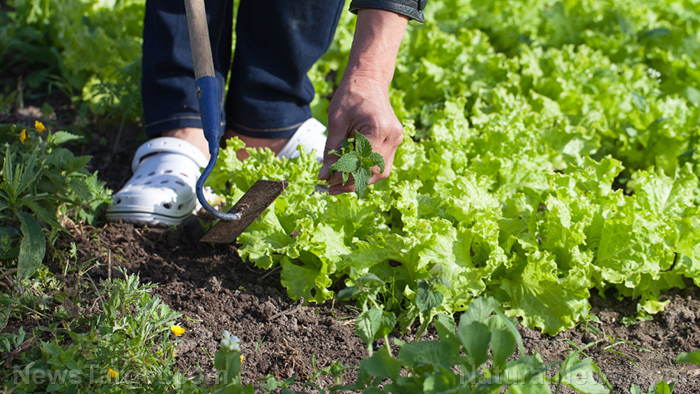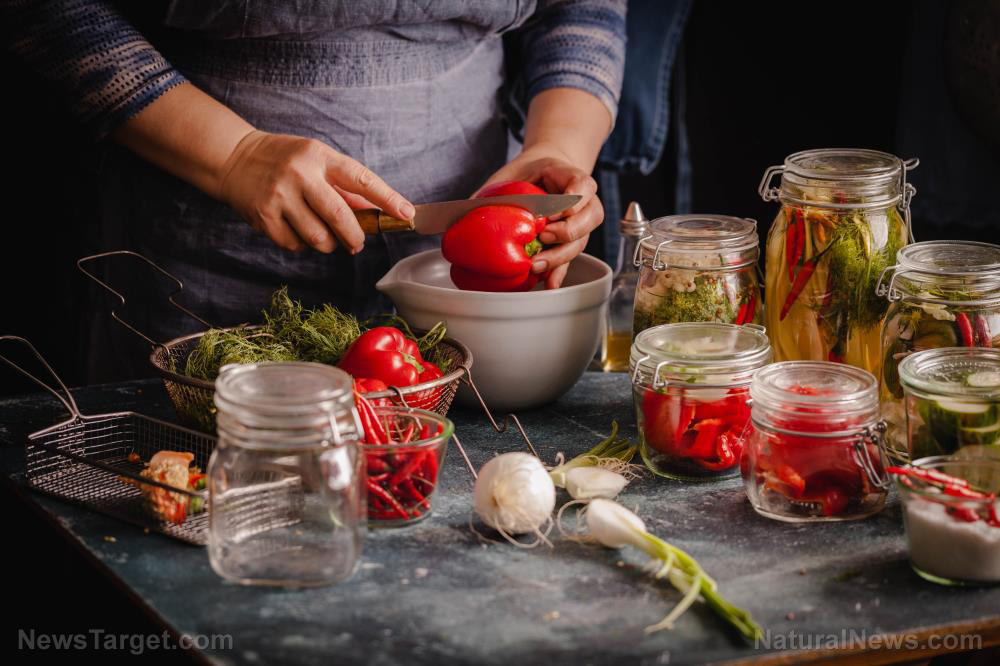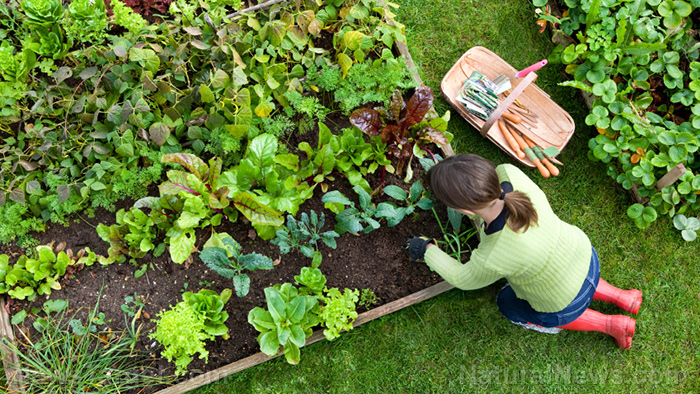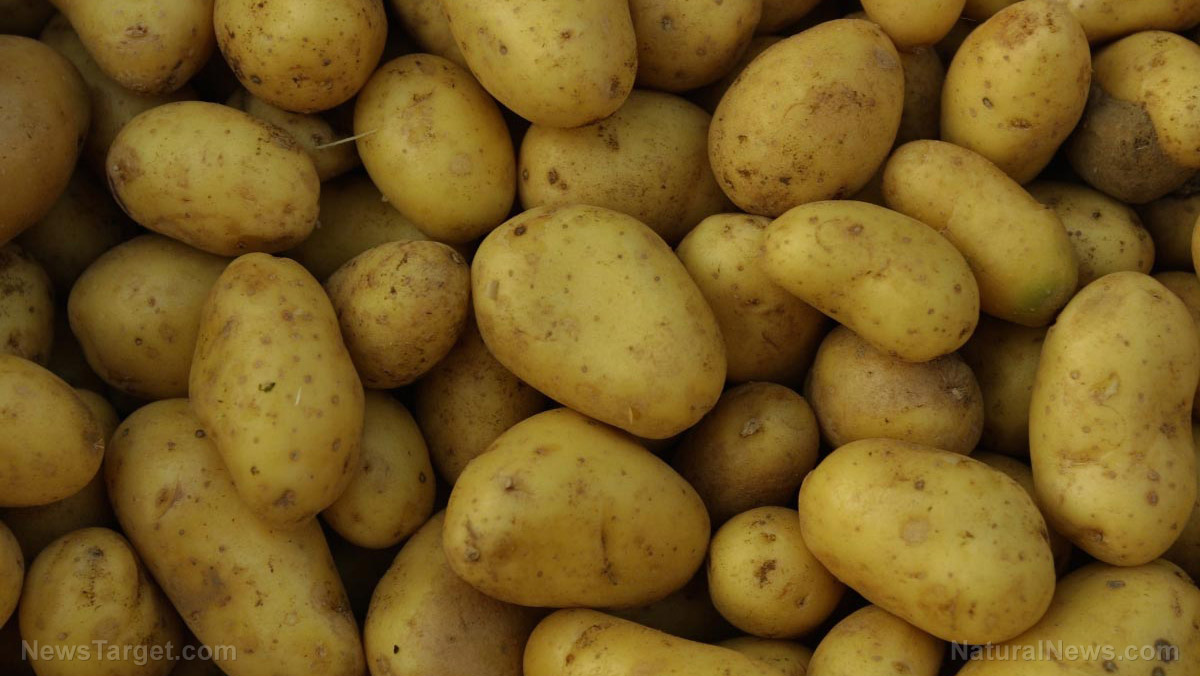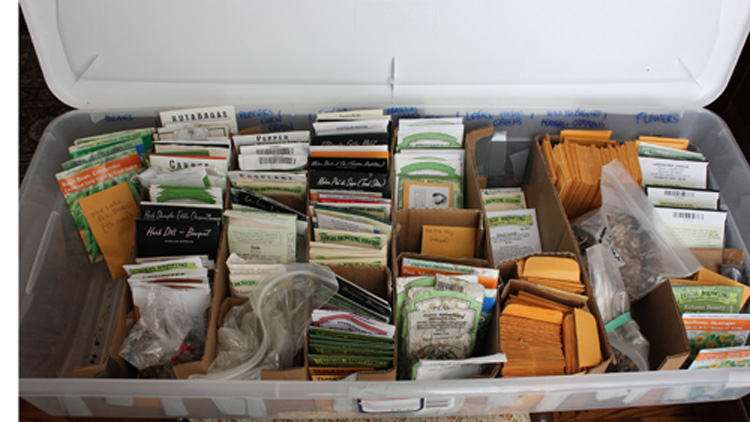Budget prepping: Ways to make your food budget last longer
05/11/2022 / By Zoey Sky

If you’ve been paying attention to store items for the last few months, you may have noticed that food prices have been increasing.
The United States Department of Agriculture (USDA) Food Price Outlook for 2022 is grim, particularly since many factors like supply chain issues, bad weather and rising fuel costs affect food costs. Fortunately, there are many ways for preppers to save money on food, such as growing fruits and vegetables in a home garden and meal prepping. (h/t to CommonSenseHome.com)
Like the other aspects of prepping, there is no one size fits all plan. However, there are different ways to stretch your food budget.
Save money on purchases
Meal plans can help you save money on groceries, but you need to be ready to adjust your plans if you want to take advantage of unexpected sales.
Before you go out to buy food, make a grocery list to prevent impulse buying
Check your refrigerator and pantry, then draft a rough menu plan using what you have on hand and what you will buy. Eating before you go shopping and making a list of the items that you need also helps prevent impulse buying unhealthy snacks or other things you don’t really need. (Related: Prepping food supply tips: How to eat healthy on a budget.)
Use coupons only if they are for items you need
Coupons can help you save money, but not if you buy things just because there’s a sale. Don’t buy an expensive item just because you don’t want a coupon to go to waste since you won’t really save money.
Watch store flyers for loss leaders, then stock up on items with a long shelf life
Check online to compare prices between stores if you can since driving to two or more locations can be a waste of gas.
Watch for sales and discounts on seasonal produce
Look for farmers’ markets in your area or shop at roadside stands set up by home gardeners.
Buy store brands
While quality may vary, many store brand items are cheaper and just as good as name brands.
Buy fewer processed items and more raw ingredients
This means buying leafy greens and making a salad at home instead of spending more on packaged salad greens. Instead of buying baby carrots, get more bang for your buck by getting whole carrots.
Buy block cheese
Skip the shredded cheese. Block cheese is almost always cheaper and it keeps better and tastes better.
Choose cheaper cuts of meat and alternative protein sources like beans
Instead of buying chicken parts or boneless, skinless chicken, get a whole chicken, which is usually cheaper. Chop up the chicken at home and use the parts for different dishes.
Keep an eye out for “must sell” fruits and vegetables near the end of their shelf life
Doing this helps prevent food waste. Buy bags of brown bananas, then peel and freeze them. Frozen bananas are great for smoothies or banana bread.
Buy discounted day-old bread and baked goods
Day-old bread and baked goods are still edible, and many stores will sometimes mark down other items like meat that are close to their expiration date.
Buy in bulk, then repack at home
Plan your grocery runs carefully and buy items in family and bulk sizes, which often cost less than single-serving containers.
Look for ethnic stores to get great pricing on certain foods
If your family eats a lot of rice, get it at local Asian markets that may have great bulk rice prices.
Use other food sources
You can save more money by starting a home garden instead of buying everything from the grocery store.
Grow herbs, fruits and vegetables in a home garden
Home gardening requires some upfront investment, but once you get your garden going you can save money on groceries. Plant vegetables that are easy to grow like green beans, lettuce, squash, tomatoes, or zucchini.
Forage for wild edibles and unharvested surplus
If you are familiar with wild edibles, go foraging for free ingredients like edible wild plants.
Sometimes, other preppers or gardeners with fruit trees will have more fruit than they can use. Ask around and some farmers may let you glean vegetables after the harvesters are done.
Always ask permission before gleaning.
Join a CSA or buy directly from local growers
If you really don’t have time for gardening, look for community-supported agriculture (CSA) arrangements in your area.
With a CSA arrangement, you pay upfront to give farmers money to cover expenses. The price is then locked in for the season. Some CSAs offer a discount in exchange for help on the farm while others offer excess crops at discounted prices to CSA members.
Buying directly from local farmers helps eliminate the middle man. Talk to local growers who sometimes sell “seconds” or produce with minor blemishes that are still fine for eating and preserving.
Reduce food waste
Preventing food waste can help you save on food expenses.
Plan meals that maximize the use of leftovers
This means planning several different meals based on the main ingredient. For example, you can make roast chicken on Sunday and turn the leftovers into meals.
Use the leftover chicken to make chicken and broccoli alfredo, then make quesadillas. Finally, make chicken broth for chicken and gnocchi soup or chicken noodle soup.
Batch cook and freeze meals
Cut the time you spend on meal prep by cooking a large batch of food and freezing things for when you need them.
With batch prepping, you prep the ingredients so they are ready to go into a slow cooker or make fully prepared meals that are ready to heat and eat.
Use fresh produce for batch cooking so it doesn’t spoil. For example, you can use a whole onion or a whole head of cabbage instead of leaving half to go to waste in the fridge.
Stretch your food budget by pairing meat with less expensive pantry items
Pair meat with pantry staples like rice and noodles, or spaghetti squash and cabbage.
You can stretch ground beef with ingredients such as:
- Breadcrumbs
- Cabbage
- Carrots
- Celery
- Cooked beans
- Cooked rice
- Eggs (Use one egg per pound of meat.)
- Lentils
- Mushrooms
- Oats (Cooked or uncooked.)
Use as much of everything you grow as you can
Don’t grow vegetables you won’t eat so your time, energy and gardening supplies don’t go to waste. Avoiding food waste helps ensure that you maximize your food budget.
Save bones and vegetable scraps to make stock
If you don’t have enough bone or veggie scraps to cook up a batch right away, collect what you have in a small container in the freezer until you do.
How to save money when away from home
You can also save money on road trips or on days when you go out to eat.
Pack lunches and snacks for work or school
Instead of buying coffee and lunch for work, you can save money by cooking at home and bringing a packed lunch.
Wait for deals and sales
Before going out to eat, wait for coupon specials, kids eat free, senior discounts or other promotional offers for your family.
If you eat out, drink water and skip dessert
Drinks and desserts are often more expensive in most restaurants, especially mixed drinks and specialty desserts. When dining out, stick to the basics and weekly specials and ask for water instead of buying drinks.
Cook food at home, grow your own fruits and vegetables and stock up on food when things are on sale to make your food budget last longer.
Watch the video below about six tips on how to eat healthy while on a budget.
This video is from the Health Tips channel on Brighteon.com.
More related stories:
Tips and tricks for eating healthy on a budget.
Meal planning and buying in bulk can reduce the cost of eating healthy.
Make healthy dinners without breaking the bank with this handy kitchen appliance.
Sources include:
Submit a correction >>
Tagged Under:
budget prepping, emergency food, food independence, Food storage, food supply, green living, grocery tips, home gardening, homesteading, how-to, off grid, preparedness, prepper, prepping, prepping tips, survival, Survival Tips
This article may contain statements that reflect the opinion of the author
RECENT NEWS & ARTICLES
COPYRIGHT © 2017 HOME GARDENING NEWS com


